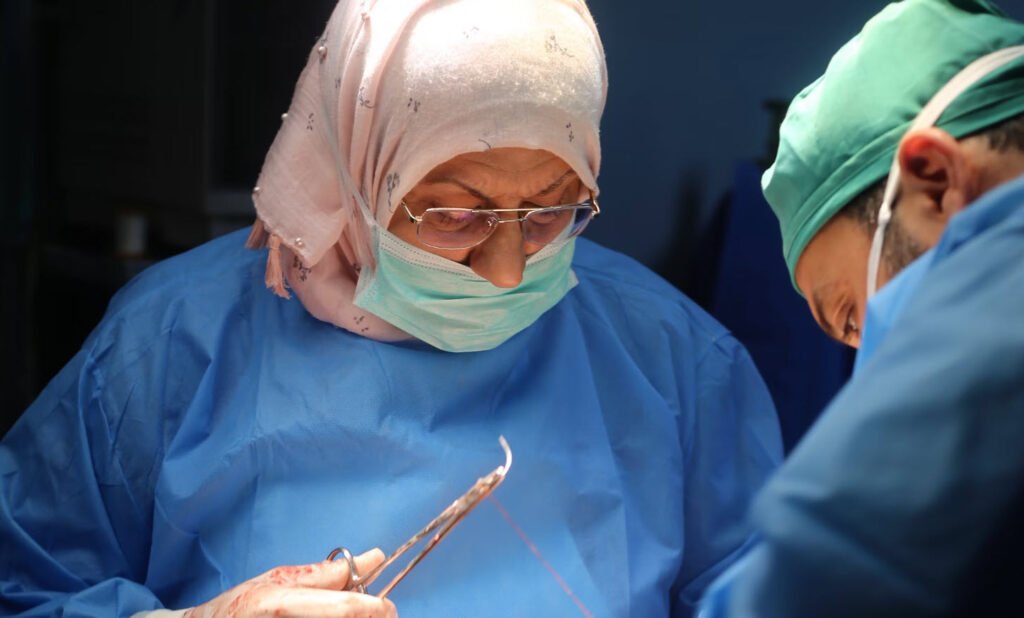
Gastric bypass surgery is a life-altering procedure that offers hope and a new beginning for individuals struggling with obesity. While the surgery itself is a significant step towards achieving a healthier weight, it is by no means a magic solution.
Success after gastric bypass surgery hinges on adopting a series of lifestyle changes that support long-term weight management and overall well-being.
Here are the top 10 tips to ensure your success after undergoing gastric bypass surgery:
1. Prioritize Nutrient-Dense Foods
After gastric bypass surgery, your stomach’s capacity is significantly reduced, which means that every bite of food counts. It’s crucial to avoid foods that are high in calories but low in nutrients, such as soda, milkshakes, alcohol, and sugar-laden desserts.
These items not only contribute to weight gain but can also trigger hunger pangs and cause discomfort, including vomiting. Instead, focus on a diet rich in protein, fruits, and vegetables. Protein is particularly important as it supports healing, muscle maintenance, and satiety. Incorporate lean meats, eggs, tofu, and legumes into your meals to ensure you’re getting adequate protein.
2. Steer Clear of Foods That Cause Discomfort
Certain foods can be challenging to digest after gastric bypass surgery, leading to discomfort or even complications. Sticky, dry, and fibrous foods, such as pasta, rice, bread, and certain meats, are often difficult to process and can cause blockages or irritation.
Moreover, carbonated beverages like soda should be avoided as they can lead to bloating, gas pain, and increased pressure in the stomach. It’s essential to listen to your body and avoid any foods that cause discomfort or adverse reactions.
3. Avoid Snacking Between Meals
One of the keys to maintaining a healthy weight after gastric bypass surgery is to avoid snacking between meals. Grazing throughout the day can lead to unnecessary calorie intake and hinder your weight loss progress.
Stick to structured meal times and focus on consuming balanced, nutrient-dense meals that keep you full and satisfied. If you find yourself hungry between meals, consider whether you’re truly hungry or if it’s a result of boredom, stress, or habit.
4. Practice Mindful Drinking: No Liquids During Meals
It may be tempting to drink liquids with your meals, but doing so can impede your ability to absorb essential nutrients. Drinking fluids during meals can fill your stomach quickly, leaving less room for nutrient-rich foods. To maximize nutrient absorption and prevent feeling overly full, aim to drink fluids at least 30 minutes before or after eating.
This practice will also help prevent dumping syndrome, a condition where food moves too quickly from the stomach to the small intestine, leading to nausea, diarrhea, and abdominal pain.
5. Refrain from Alcohol and Caffeine
Both alcohol and caffeine can have detrimental effects on your body after gastric bypass surgery. Alcohol is not only high in empty calories but can also irritate your stomach lining and increase the risk of developing ulcers. Caffeine, on the other hand, is a diuretic that can contribute to dehydration, which is already a concern post-surgery.
Furthermore, caffeine can exacerbate acid reflux, a common issue after gastric bypass. It’s best to avoid these beverages or consume them in moderation with guidance from your healthcare provider.
6. Be Vigilant About Warning Signs: Contact Your Surgeon When Necessary
While complications from gastric bypass surgery are relatively rare, it’s crucial to be aware of warning signs that may indicate a problem. If you experience severe leg pain, shortness of breath, fever, bleeding at the incision sites, or dark stools, contact your surgeon immediately.
These symptoms could be indicative of serious issues such as blood clots, infections, or internal bleeding. Early detection and intervention can prevent complications from becoming life-threatening.
7. Commit to Regular Follow-Up Visits
Your journey doesn’t end after the surgery; in fact, it’s just the beginning. Regular follow-up visits with your surgeon and healthcare team are essential for monitoring your progress and addressing any issues that may arise. These appointments allow your doctor to assess your nutritional status, weight loss, and overall health.
They also provide an opportunity to adjust your treatment plan as needed, ensuring that you’re on the right track for long-term success.
8. Delay Pregnancy for at Least Two Years
For women of childbearing age, it’s important to avoid pregnancy for at least two years following gastric bypass surgery. During this time, your body is undergoing significant changes as you lose weight and adapt to your new nutritional needs. Becoming pregnant too soon after surgery can place additional stress on your body and may lead to complications for both you and your baby.
If you’re considering pregnancy after surgery, consult with your surgeon to develop a plan that prioritizes both your health and the health of your future child.
9. Join a Support Group
The emotional and psychological aspects of weight loss surgery can be just as challenging as the physical changes. Joining a support group can provide invaluable encouragement, advice, and camaraderie from others who have undergone similar experiences.
Whether you connect with a local group or find a community online, having a support network can help you navigate the ups and downs of your post-surgery journey. Support groups offer a safe space to share your challenges, celebrate your successes, and learn from others who understand what you’re going through.
10. Develop Healthy Coping Mechanisms for Stress
Stress is a common trigger for emotional eating, which can derail your weight loss efforts after gastric bypass surgery. Developing healthy coping mechanisms for stress is essential to avoid falling back into old habits.
Find activities that help you relax and unwind, such as listening to music, reading, practicing mindfulness, or spending time with loved ones. Regular physical activity, such as walking, yoga, or swimming, can also reduce stress levels while contributing to your overall health. By managing stress effectively, you’ll be better equipped to maintain your weight loss and avoid the pitfalls of emotional eating.
Conclusion
Gastric bypass surgery is a powerful tool for weight loss, but its success depends largely on the choices you make afterward. By following these ten tips, you can maximize your chances of achieving and maintaining a healthy weight while improving your overall quality of life.
Remember, the journey doesn’t end with surgery—it’s an ongoing process that requires commitment, support, and a positive mindset. With the right approach, you can make the most of your gastric bypass surgery and enjoy a healthier, happier future.








